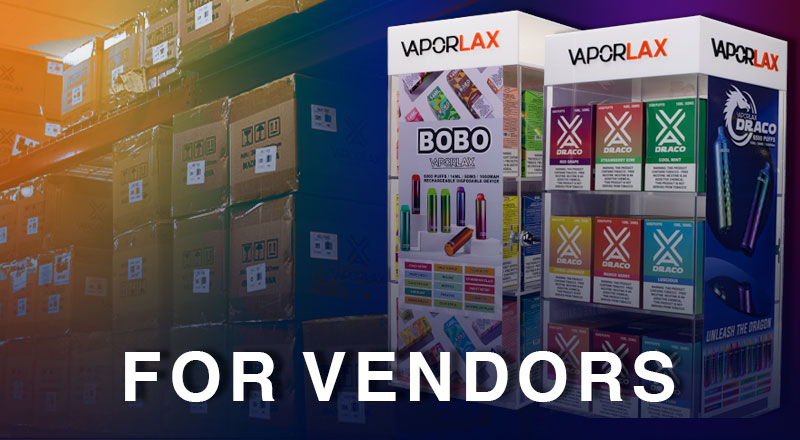Decoding the FDA's Supreme Court Petition: Implications for the Vapor Industry
The FDA has requested the Supreme Court to reconsider the ruling of the Fifth Circuit Court in the Triton Distribution appeal. Should the court grant the FDA's plea, it might lead to significant changes in the agency's premarket review procedure, or alternatively, affirm the FDA's existing practices.
I had the opportunity to interview Greg Troutman, who serves as Industry Amicus Co-Counsel, to delve into the details of the case and explore its potential implications for the vapor industry.
Alli: Can you explain the significance of the FDA's petition to the Supreme
Court regarding the Fifth Circuit Court's decision in the Triton
Distribution appeal on the vapor industry?
Greg: The Supreme Court accepts a very limited number of cases each year,
perhaps only 2% of those presented to it. The Court looks at several factors
when deciding whether to accept review of a case, including whether there is
a split of authority among the 12 federal appellate circuit courts, whether
the issue involves a federal statute or regulation, and whether the issue is
likely to recur. One thing that makes review by the Court more likely is the
fact that both the industry (Magellan, Lotus and soon to be Logic) and FDA
have sought review concerning the same statute (the TCA), the same
regulation (the Deeming Rule) and the same review process. The timing of
these petitions is also significant. The Court is poised to abandon or
greatly roll back the Chevron deference standard in agency review cases.
These PMTA cases are hitting the Court's docket at a very opportune time.
Alli: How did the Fifth Circuit's ruling in favor of Triton impact the FDA's
premarket review process, and what potential implications could arise from
the Supreme Court's review of this decision?
Greg: One could argue the Triton ruling blew up FDA's review process for
any vaping products made by companies located in Texas, Mississippi, or
Louisiana. This is critical because a lot of manufacturers moved from
California to Texas following the California flavor ban. The Supreme Court
has shown a very strong anti-agency bend in recent years and a grant of
review could arguably be viewed as a sign that the Court intends to bring
some certainty to the issue that would apply nationwide. What we need to
watch is whether the Court also accepts review of one or more of the
industry cases in tandem with Triton. To me, that would signal a very strong
possibility that the industry will prevail.
Alli: What were the key arguments made by Triton in challenging the FDA's
marketing denial order (MDO), and how does this case differ from other
similar challenges by vape manufacturers?
Greg: The arguments made in the Triton case really do not differ
significantly from the arguments made in the other MDO appeals which were
brought in the other circuits. Triton argued the following: (1) FDA
arbitrarily modified its PMTA review process without fair notice to the
industry before the application deadline; (2) FDA's comparative efficacy
standard is a de facto flavor ban which it adopted contrary to the TCA's
tobacco product standard requirements; and (3) FDA ignored relevant and
important aspects of the problem (i.e. mitigation of youth access). Many of
the industry lawyers regularly conferred with each other during the appeals
and openly shared ideas to make sure the strongest arguments were made in
the various cases.
Alli: What criticisms did Fifth Circuit Judge Andrew S. Oldham level against
the FDA's premarket review process, and how might these criticisms influence
the ongoing legal proceedings?
Greg: Judge Oldham was quite blunt in his assessment of FDA's review
process. His assessment in the en banc ruling should come as no surprise
given that he used the phrase "surprise switcheroo" when authoring the 2021
ruling which granted Triton its initial stay. Judge Oldham went to great
lengths to lay out the timeline and history of FDA's various pre-PMTA
dealings with the industry and how what it continuously represented during
that time failed to live up to what it actually did when reviewing the
PMTAs. That was the "wild goose chase" which Judge Oldham described. In
particular, the ruling looked at FDA's representation that it did not intend
to require long-term studies and that marketing plans were important, but it
then rejected PMTAs because they lacked long-term studies and failed to even
read the marketing plans. Boiled down, the en banc panel believed there was
an absence of fundamental fairness in FDA's review process.
Folks also need to understand that the Fifth Circuit has been the
"go to" circuit for challenges to Obama and Biden era policies because that
Court has shown a strong anti-agency bend. There's also some hidden
subtilities in Judge Oldham being picked to write the en banc ruling. He
clerked for Justice Alito and a resume that will have his name on a short
list for a Supreme Court appointment if former President Trump wins. The
judges on the Fifth Circuit know Judge Oldham is a rising star and him being
tasked with writing the ruling signals his colleagues' belief the case will
likely end up being decided by the Supreme Court. The en banc majority may
also have crafted the ruling as they did to force the Supreme Court to
reconsider a long-standing administrative law principle regarding the
ability of an agency to make substantive rulemaking through an adjudication
process.
Alli: Can you discuss the role of the U.S. Solicitor General and the Justice
Department in filing the petition for review on behalf of the Department of
Health and Human Services and the FDA?
Greg: The Solicitor General is the third highest ranking attorney at the
Department of Justice. The Solicitor General and her deputies are tasked
with representing the federal government and its agencies in all cases
before the Supreme Court. The Solicitor General prepared the Supreme Court
Petition on behalf of FDA and will argue the case before the Court if it
grants review. The current Solicitor General, Elizabeth Prelogar, is a very
good attorney and a very good advocate in presenting arguments to the Court.
It is not surprising that five former Solicitor Generals have gone on to
become Supreme Court justices, including Justice Kagen. General Prelogar is
certainly someone who will be on a short list if a Supreme Court vacancy
arises should President Biden win re-election.
Alli: How likely is it for the Supreme Court to accept the petition for review
in this case, considering the existing circuit split and the recent filings
by other vape manufacturers such as Magellan Technology and Lotus Vaping
Technologies?
Greg: The fact that both the industry and FDA are simultaneously seeking
review of cases involving the same subject matter in the face of a circuit
split makes it much more likely the Court will accept review. A grant of
review is always unlikely but the circumstances in which the various PMTA
cases are landing on the docket make the probability of review much greater.
However, since the Court would likely be making its decision on whether to
grant review right after changing the Chevron deference standard, one thing
the Court could do is deny review in Triton (which would mean the Triton
ruling stands) and vacate the appeals court rulings in Magellan, Lotus and
Logic and require the appeals courts to consider the cases again in light of
whatever new deference standard the Supreme Court adopts in the
Loper/Relentless cases.
Alli: What impact could a potential Supreme Court decision on the Triton case
have on other pending appeals related to marketing denial orders for vape
products, such as the stay granted in the case of R.J. Reynolds' Vuse
menthol refills?
Greg: A ruling by the Supreme Court, one way or the other, will dictate
how FDA must act going forward in adjudicating all remaining and future vape
product marketing applications. For pending cases like Reynolds, which is
being held in abeyance pending the finality of Triton, a Supreme Court
ruling will dictate how the appeals courts decide those cases. A Supreme
Court ruling which upholds Triton would enable manufacturers who previously
got MDOs to resubmit their PMTAs with updated information (the science has
swung much more favorably since 2020) and FDA would have to review them
under whatever parameters the Court set out in its ruling.
Alli: Are there any specific legal arguments or precedents that you believe
will be crucial in determining the outcome of this case and potentially
shaping future regulations in the vapor industry?
Greg: I anticipate the Supreme Court will focus on the legal arguments
which Triton and FDA made before the Fifth Circuit (or which other companies
and FDA made in the various appeals). I am sure the pro-industry amicus
briefs will lay out some other arguments. Among the arguments which I hope
the amicus briefs make are a challenge to the underlying constitutionality
of the TCA's deeming provision under the non-delegation and major question
doctrines (the Supreme Court is itching to make a non-delegation statement)
and that the Court should reconsider its 1947 ruling in SEC v. Chenery Corp
in light of any changes to the Chevron deference standard.
Alli: How do you anticipate the FDA and other stakeholders in the vapor
industry will respond to the Supreme Court's decision on whether to review
the Triton case?
Greg: I do not anticipate that FDA will alter its course at all if the
Supreme Court grants review. FDA has publicly announced its plan to complete
the review of all remaining PMTAs by the end of June. I fully expect it to
stick with a timetable close to its public representations. Manufactures of
flavored e-liquids could "Animal House" FDA by forming a marketing co-op in
Texas, assigning the co-op marketing rights to their flavored e-liquids, and
then having the co-op file new PMTAs. Since Texas is in the Fifth Circuit,
FDA would be legally constrained to review the PMTAs in accordance with
Triton, as it represents the Law of the Circuit. We know from experience
that FDA does not respond well to being inundated with millions of PMTAs.
FDA has grossly underestimated the vape industry at every turn. It made many
mistakes during the pre-PMTA period and then tried to cover up those
mistakes on the back side. The industry should fully exploit FDA's known
weaknesses.
Alli: In light of the ongoing legal challenges and regulatory uncertainty
facing the vapor industry, what steps do you recommend for companies to
navigate this complex landscape effectively?
Greg: I recommend that everyone keep doing what they are doing.
Manufacturers need to be ready to resubmit their PMTAs if we get a favorable
Supreme Court ruling. We are fortunate in that the science has swayed much
more heavily in the industry's favor since the 2020 PMTA deadline. We have
the Abigail Friedman study, we have the Center for Black Equity study, we
even have some FDA-funded studies which are favorable. A Supreme Court
ruling which upheld the Triton decision would be a game changer for several
reasons. First, a grant of review would likely motivate Congress to amend
the TCA to reform the PMTA process. It would not surprise me if Congress
were concerned that Triton and these other cases are coming along right as
the deference standard likely changes and the totality of the impact on
regulatory cases. Congress may want to get out in front of reforming the
PMTA process before the Court leaves everyone in a vacuum. Second, a ruling
in Triton's favor would set the standard for the nation which would apply in
all future cases. The one thing I will say is that industry stakeholders who
survive the next 18 months should be very well positioned for the future.
In conclusion, the FDA's petition to the Supreme Court regarding the Triton Distribution appeal holds significant implications for the vapor industry. Greg Troutman's insights shed light on the complexities of this legal battle and its potential repercussions. The Supreme Court's decision to review the Triton case could lead to fundamental changes in the FDA's premarket review process, impacting vape manufacturers nationwide.
As we await the Court's decision, it's crucial for industry stakeholders to remain vigilant and prepared for any outcome. Regardless of the ruling, navigating this regulatory landscape requires strategic planning and adaptability. The next steps for companies hinge on the Court's decision and may involve resubmitting PMTAs or advocating for legislative reform. Amidst ongoing challenges and uncertainties, those who persevere stand to emerge stronger and more resilient in the evolving vapor industry landscape.






Leave a comment
This site is protected by hCaptcha and the hCaptcha Privacy Policy and Terms of Service apply.